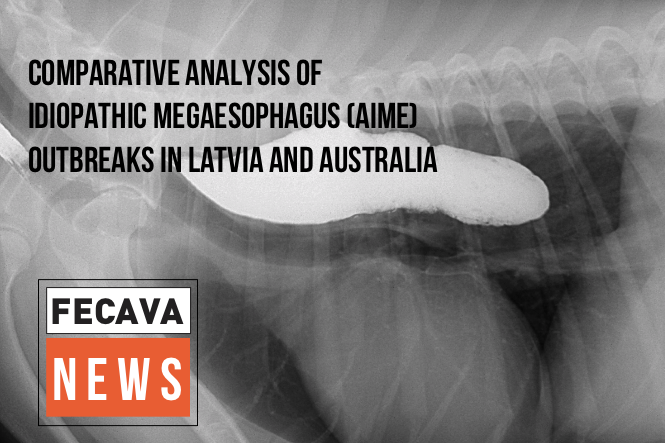
A comparative analysis of two unrelated outbreaks in Latvia and Australia of acquired idiopathic megaesophagus in dogs fed two brands of commercial dry dog foods: 398 cases (2014–2018)
In Latvia in 2014, acquired idiopathic megaesophagus (AIME) was observed in increased numbers of dogs. Within 2 years, 253 dogs were affected.
Performed in May 2015, the retrospective study was an epidemiological investigation of possible causes of AIME.
AIME was diagnosed predominantly in large-breed male dogs (> 25 kg [55 lb]). Regurgitation, weight loss, and occasionally signs consistent with aspiration pneumonia (coughing, dyspnea, or fever) were noted. Most dogs had mild to severe peripheral polyneuropathies. Findings indicated no correlations among geographic region, presence of infection, vaccination status, or administration of prophylactic parasiticides. However, 94% of affected dogs had been consuming the same brand of locally produced and distributed dry dog food, Brand X.
Investigations included clinical, epidemiological, neuropathologic, and case-control studies.
Strong associations between the dog foods and the presence of AIME were confirmed; however, toxicological analyses did not identify a root cause. In Latvia, the implicated dietary ingredients and formulations were unknown.
A panel of international multidisciplinary experts concluded that the cause of AIME ioutbreak was likely multifactorial, with the possibility of individualized sensitivities. A better surveillance system for early identification of pet illnesses, including those associated with pet foods, is needed.
Comparative analysis in Latvia and Australia of acquired idiopathic megaesophagus in dogs fed two brands of commercial dry dog foods was made and recently published in JAVMA: LINK.
Leave a reply

Leave a reply